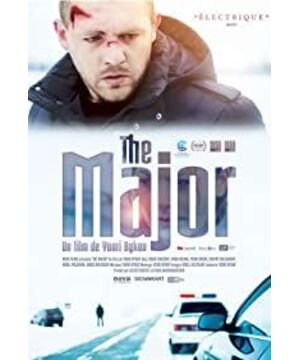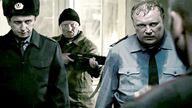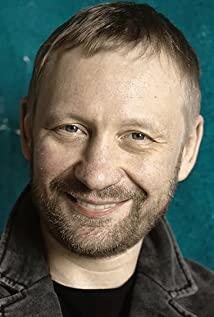But actually won the award, and there are three, including the best director and the best picture. This is rather surprising. Because I haven't watched all the participating films, I can't make assumptions. But with the quality of the film itself, one can't help but wonder if it's a taller than a dwarf.
The best artistic creation is awarded to the production link of the film, so Bekov is a screenwriter and director editing the music. He has worked hard, and the standards meet the requirements.
Best director and film, I really don't think it's that good.
Let's start with the director's point of view. Since the screenwriter award was not given to him, it means that the jury did not think the script had any merit. But the director and the screenwriter are the same person, which means that in the creative process, these two aspects are integrated. The story design of the film is to create a butterfly effect, an accident whose original responsibility is quite clear, and then the police department came forward to try to solve it, but it didn't work, so it escalated little by little.
This kind of book is very good-looking when it is compiled, but it is easy to be anticlimactic if it is not compiled well. At any point, if the explanation is unclear or the character's behavior lacks a logical basis, it may result in collapse. And only for small beginnings and big endings.
The book of this film has a big problem, that is, the cause is not small enough, and the ending is not big enough. Killing a person at speed is a big deal, and killing a child is a big deal. So the cause seems too big. The end is, of course, murder. Because the cause is already dead, the tail can only be the death of more people. That's where the trouble comes in. Before and after contrast differences are not strong.
In terms of character creation, the role of several protagonists in the fermentation process of the event is very unclear, especially the male protagonist. The director had to add a lot of weird indecision in order to create a flesh-and-blood person. As for the last thing he shot and killed the mother, he was even more confused.
That iron buddy is also a strange figure. From beginning to end, I don't know why I acted as a killer.
There is only one more vivid character in the whole film, that is the old fritters who drink for his mother. This guy is the best, and certainly the most down-to-earth character.
As for those behind the scenes, it is even more inexplicable.
For such a book, perhaps the creator himself understands it very well, so he took it with confidence and boldness. As a result, he fell into the trap set by his own book. Hesitant butterfly effect stories need the characteristics of small heads and big tails, and the book itself lacks this characteristic, and the director failed to make the audience feel that things are fermenting in the rhythm of the shots.
If the film started slow and ended fast, then maybe it would better reflect the original intention of his original story. But in the production process, he obviously had to deviate from this original intention, and told the story with very strong language from the beginning.
In the ice and snow, the protagonist ran, panted, cried, sighed, etc., all his energy was exhausted. The more you look at the second half, the more tired you are, and the colder you look.
But in this film, the director also added a second clue, unintentionally or unintentionally, that is the fall of national power. The dilapidated police station and the helplessness of the police in the face of the father with the shotgun and the corruption of the black hands occupy nearly half of the pages. I don't know if this is a clue he deliberately wants to express, or in his opinion, this is just one of the unfavorable factors that fermented the incident. In short, this line actually took a lot of energy.
So I have to ask the question, could such a cover-up become smoother in an era when the glory of the past is still there? Or if the police were better off, they wouldn't retain the way of thinking they did during the totalitarian period? The director did not give a satisfactory answer to this question.
With no satisfactory answer, why the director made the film, and what the film is trying to provoke us to think about, becomes blurred. No matter what the judges who have seen all the films in the competition think, at least in my opinion, films that do not have a clear artistic purpose are technically only general. The director should not be just a craftsman, but a mentor, leading people into the world he designed.
So from this point of view, the director award should not be awarded to him.
As for the best picture, as I said at the beginning, I'm afraid it's really the best picture. . .
View more about The Major reviews








